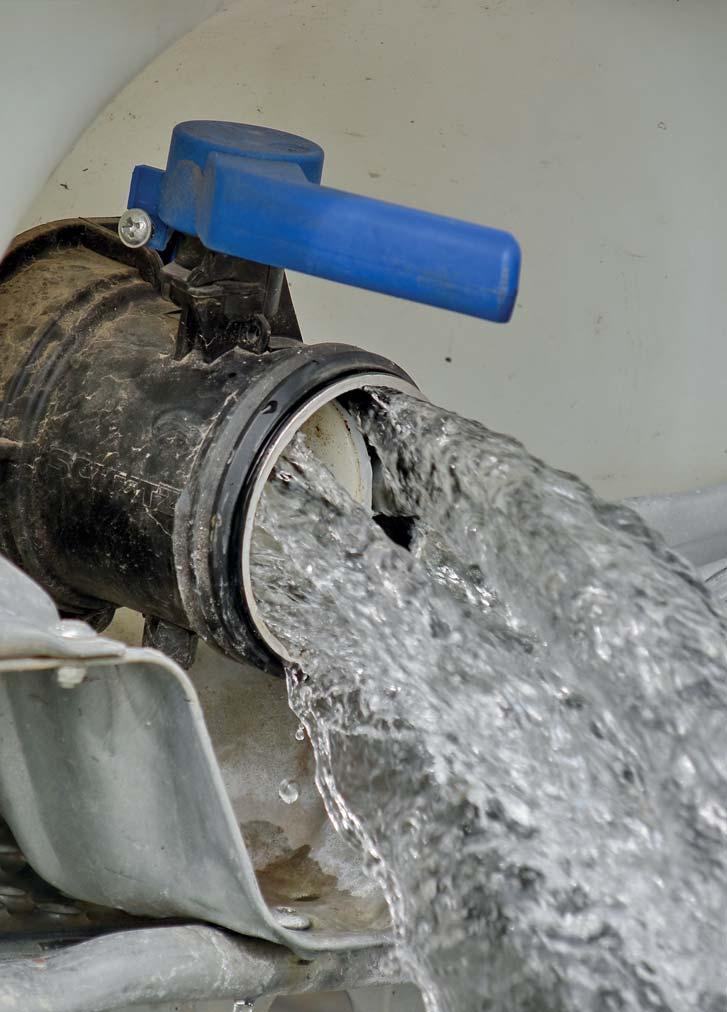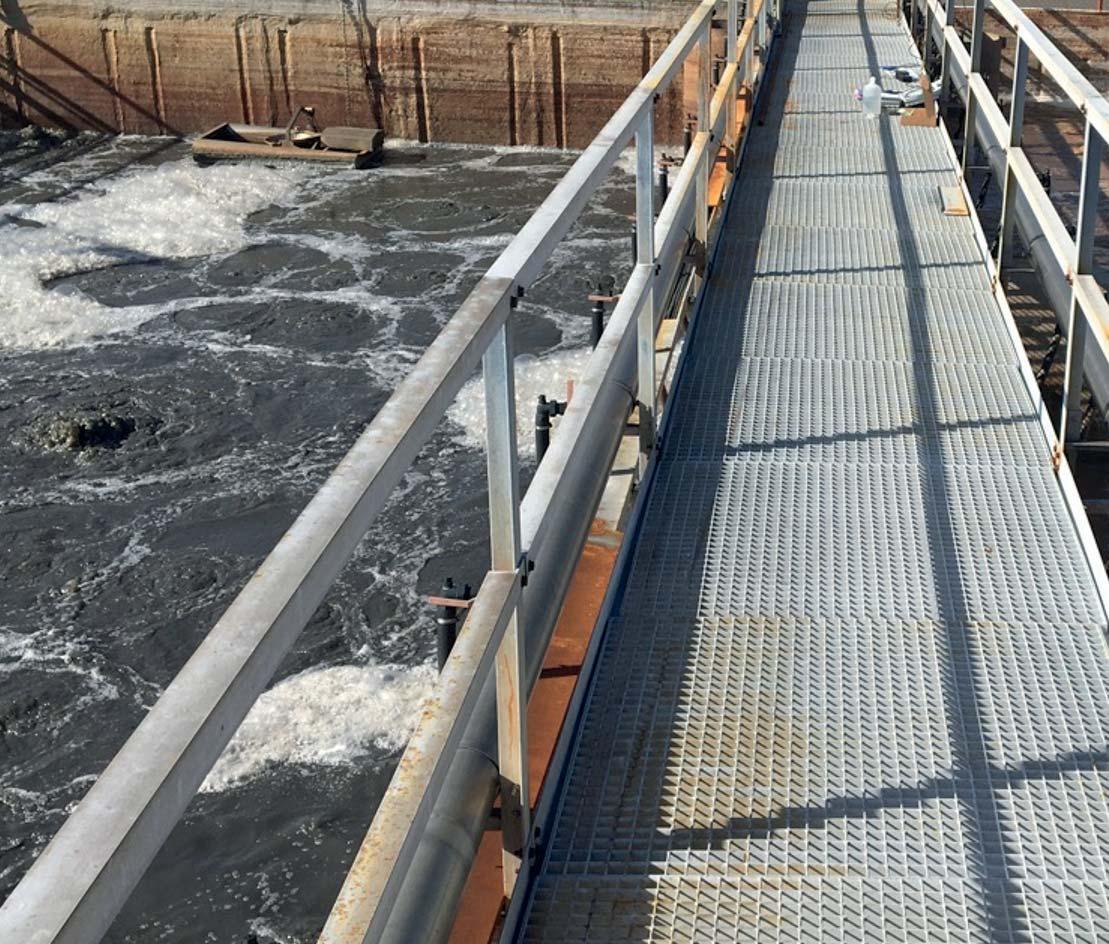
5 minute read
Water audit
from CITY:ONE.1.2020.EN
by CityOne
METHODOLOGY OF THE MINISTRY OF INDUSTRY AND TRADE „EVALUATION OF WATER USE AT THE ENTERPRISE LEVEL“ AS A TOOL FOR COMPLIANCE WITH ISO 46001 WATER EFFICIENCY MANAGEMENT SYSTEMS
In the autumn of 2019, the Ministry of Industry and Trade of the Czech Republic commissioned the Beta2 project of the Technology Agency of the Czech Republic „More economical use of water in industry and energy of the Czech Republic“ to develop a Methodology for assessing water use at the enterprise level, i.e., a methodology for so-called water audit. The annual project is made by 12 experts (4 data analysts, 3 process engineers, 2 scientists, hydraulic engineer, hydrologist, and project administrator) grouped under the main researcher of the project, company Envi-pur s.r.o. In addition to the methodology, the project outputs also include:
Advertisement
· proposal of measures to support water saving activities in industry and energy. · analysis of water demand by industry. · a proposal to support innovative activities in the field of reducing water consumption.
: Methodology structure
The water audit methodology is intended for the evaluation of water management of industrial enterprises. It defi nes the processing entity, the minimum scope of evaluation and the structure of the resulting report. It also describes the minimum and recommended range of procedures and methods used, including tools for its implementation.
The methodology and the water audit itself are based on the principle of energy audit and the standard ISO 46001 Water Effi ciency Management Systems, supplemented by professional and practical knowledge from the operational water management practice of industrial companies. Water audit is a comprehensive analysis of water management of the entity. It primarily deals with the management of water resources, the
use of water in the company and the management of process and waste water. The key part is the analysis of water data management, water management balance and risk analysis associated with infrastructure, waste, data management and especially the risks associated with the lack of water resources. Secondly, the water audit identifi es proposals for possible measures to reduce these risks and defi nes the indicative parameters (KPI) of measures for future evaluation of their implementation.
The water audit includes extensive appendices containing input data, balance sheets, graphical diagrams of the main water streams in the company, SWOT analysis, open calculation tools in the form of MS Excel spreadsheet, documents on the water auditor and evaluation by the provider of subsidies for water audit processing – the ministry).
: Objectives of water audit
1. Evaluation of the current state of water management in an industrial enterprise 2. Find potential water savings and reduce the risks of water scarcity impacts 3. Proposal of real measures (= basis for investment plan, framework study)
: Benefi ts for industrial enterprises
The main purpose of the water audit is to obtain complete, independent aggregated information on water management in the company for the last 3 years and to propose potential savings and real (data) documents for the investment plan for business development in relation to sustainable water

management. However, the implementation of water audits is also supported by two tools from the ministries of the Czech Republic:
Ministry of Industry and Trade - a company with a prepared water audit will be given an advantage when evaluating the application for investment subsidies for implementation from the prepared Operational Program Technology and Applications for Competitiveness (OP-TAK) for the period 2021-2027 (under the responsibility of the ministry).
Ministry of the Environment - a company with a prepared water audit will have the opportunity to apply for the automatic award of the so-called Mark of Responsible Water Management (under the responsibility of the Ministry of the Environment).
: Financing
The purpose of water audit corresponds to the national priority objectives of the Czech Republic to contribute to the development of business activities, support for the competitiveness of small and medium-sized enterprises (SMEs) and responses to climate change. As a result, it is possible to apply for funding from the just-ending program of the Ministry of Industry and Trade OP-PIK, II. Call - Advice (advisory services) for SMEs. The subsidy for the preparation of the water audit is 50% of the eligible expenses and the announcement of the call is planned for December 2020. The total allocation of the call is CZK 130 million and the maximum amount of costs for the implementation of the water audit is CZK 1 million. Completion of applications is planned for April 2021. However, the lifetime of the methodology is independent of the grant call and its concept guarantees applicability at least for the entire new programming period of the ministry OP-TAK until 2027 and provided in consultation with the Agency for Enterprise and Innovation (API).
: Overlap into towns and villages water management
The water audit methodology, the certifi cation of which is ensured by the Ministry of Industry and Trade, is in some areas of


water resources management also applicable in the assessment of water management of cities and municipalities and public, i.e., not only industrial, premises and institutions (typically schools, public service centres, etc.). The water audit holistically emphasizes the need for the collection, evaluation and use of water management data (data-driven development of the company‘s water management), in full accordance with the theses of the Ministry of regional development methodology Concept of Smart Cities (2015), its annex Smart water management in cities (2019). Most key proposals for innovation activities at the enterprise level will be the digitization of water management infrastructure (the company‘s digital twin), the aggregation of data items and the passport of water management assets in digital form (BIM). As the water management of industrial enterprises is often dependent on the supply of drinking water from a public (i.e., urban) water source, coordination of ensuring suffi cient water resources for both these organisms (enterprise and city) is essential and off ers, for example, the use of accumulation / absorption capacities of the city / enterprise to synergetic projects. A typical example could be the use of private areas of the company‘s roofs to capture and accumulate rainwater and its use to cool or reduce the dustiness of access roads.












